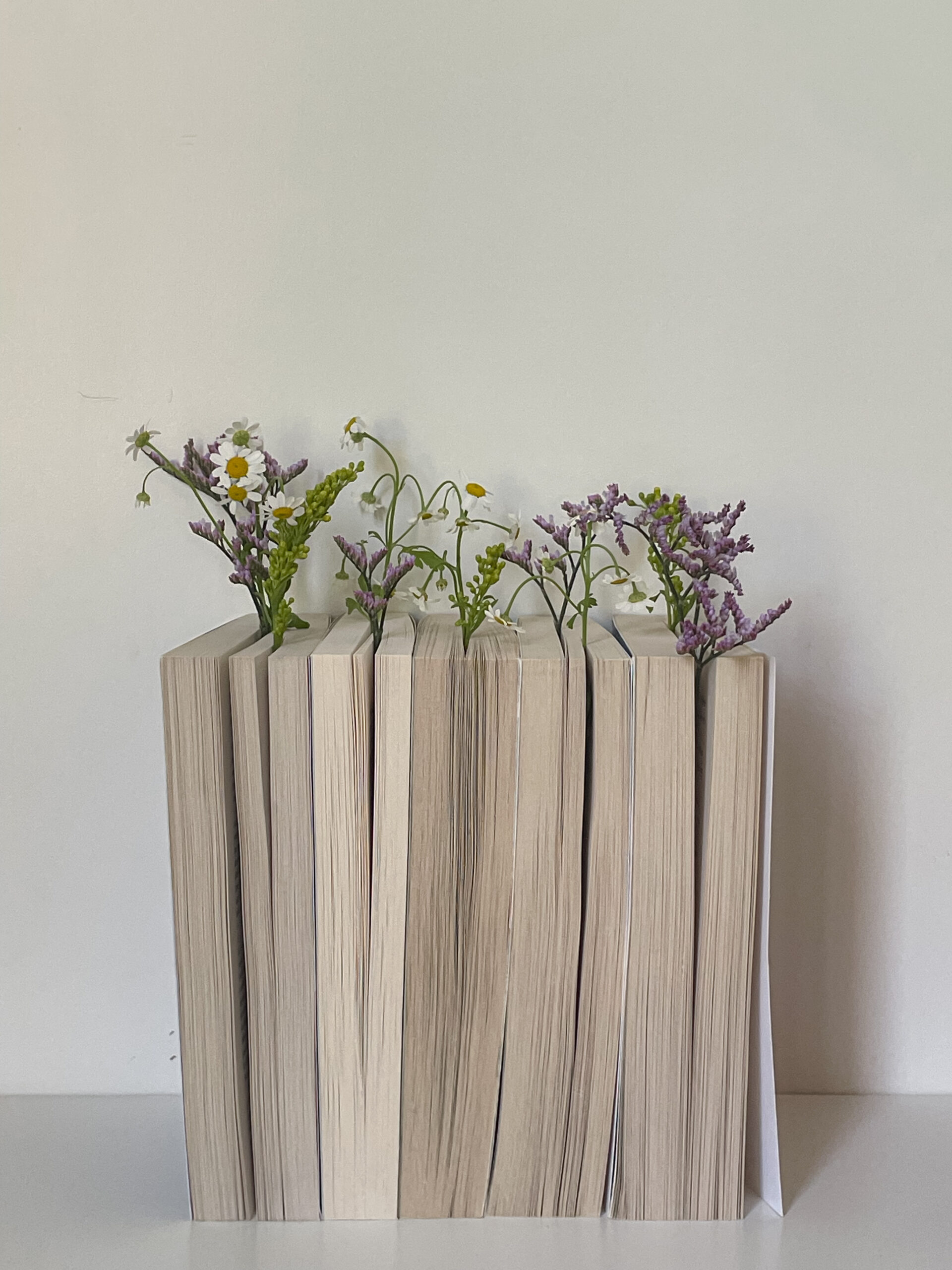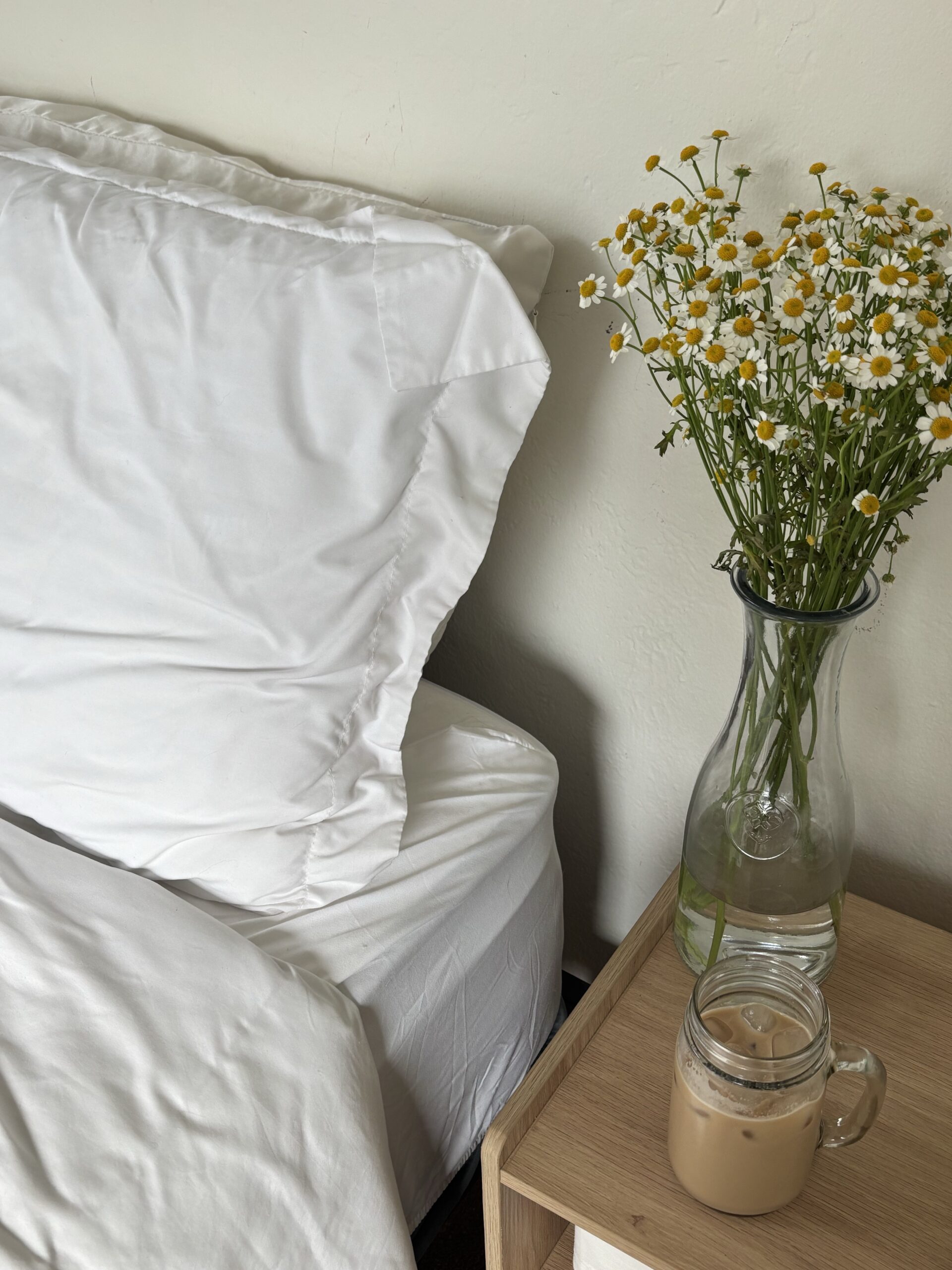ME
NU
Word from Home
I'm Stephanie
You’ve arrived! Welcome to The Everywhere Girl, a slow living blog that helps you cultivate a sense of home in any space or season. I’m Stephanie, resident writer, chronic wanderer, and hospitality enthusiast. I’m so glad you’re part of the community.
My love letter to home. These notes come to you from across the continent, across the globe, and across the hall.
Steeped in faith, literature, and self-discovery, they’re my way of finding home within myself, and with all of you.
Have you ever thought about building a writing routine? Showing up for your novel again and again is the one thing standing between you and a finished book. But it’s the hardest part about being a novelist. Here’s how you can make it a little easier…
It’s a truth universally acknowledged that a human in possession of a good story must want to write a book.
It doesn’t matter if you’re a science nerd or a natural creative; stories are the one thing that connects us all. Telling stories is part of being human, even dating back before we had written language. So if you’ve held onto a book idea since first grade or you’re thinking about writing a memoir in retirement, you’re in good company.
The problem? Actually putting 50,000+ words on paper is a real challenge. This is an accomplishment that takes years of dedication, plus the guts to show up daily. But there is one thing that makes writing a novel slightly easier: an established writing routine.

The Future Novelist’s Guide to Building a Writing Routine
There are a ton of resources out there on how to create a writing routine. But most of them are complicated, with multiple steps included.
Here’s the thing … building a writing routine is easy. It’s actually showing up that’s hard. Unchecked writing routines can function as double-edged swords. They can easily help you show up, or they can distract you from getting the work done.
If you need the right snacks, the right mood lighting, and a piping hot cup of tea to show up for your novel, then you’re not building an effective strategy. The real accomplishment is taking your notebook or laptop to any location without huge shifts in productivity.
Step 1: Show up
Unfortunately, this step requires a little math. The average novel is about 70,000 words in length. So, how many days do you have to show up in front of your computer screen to meet that word count? Can you write daily or just twice a week? Are you the kind of person who can binge-write in a few months, or will you need to commit to your novel for a year?
Consider how fast you write on average and how much of your book is already outlined. That should give you an idea of how many days per week you’ll spend writing. The key here is, don’t overanalyze. You can’t attach your value to how often you show up. Even if you miss a day or a week (we all do), what matters is that you return to your book. And keep returning.
Pro tip: Some writers recommend showing up for your novel early in the morning when your brain is fresh. But this might be too much pressure. Make your goal simply to show up. Anything else is a bonus. You can always refine your writing routine later on, but you can’t replace being present.
Step 2: Set your mood
This is one of the most exciting parts about becoming a writer. Your writing ritual should give you warm and fuzzy feelings and build excitement as you step into your novel’s world. This is all about cultivating a creative space, and it can include tea, candles, writing snacks, a cozy fireplace, and the same comfy corner in your living room.
I know, I literally just said your writing routine isn’t about the mood lighting. And it isn’t. But sometimes we have to bribe ourselves when we first start. Ideally, your cozy writing ritual gets you to show up for your book as you build emotional investment. In a few weeks, you’ll have characters, plot twists, and regular habits that keep you at your desk.
Pro tip: When you set a writing mood, you’re actually training your brain. The same playlist, same tea flavor, and same pomodoro schedule remind your brain that it’s time to write. When you harness familiarity, your brain is ready to write even on days when you’re overtired, away from home, or just don’t feel like it. That’s the real power and goal behind your cozy writing space.
Step 3: Minimize distractions
Writing a book is a huge undertaking. We build a writing routine because it’s such an intense and long-term commitment that requires guts. So if you really want to commit to this, you need to find a way to limit distractions. This means honestly looking at the things that keep you from achieving your goals and finding a way to prioritize yourself.
Limiting distractions might feel easy at first, but it gets harder as you move forward with your book. Whether you lock your phone in a drawer or wake up before your family’s around, limiting distractions is really about valuing yourself and your work. You have to believe in your core that this project is worth giving your heart, time, and talent to. If you don’t, it’s easy to distract yourself.
Pro tip: Phones are a huge distraction these days, and they can really kill your creativity. For example, TikTok-style videos are made to shorten your attention span, which is detrimental when you’re either reading or writing a long-form novel. I recommend you lock your phone with something like Brick during your writing routine. This kind of tool can also help retrain your brain and create healthy habits daily, so it’s easier to show up for long projects.
Step 4: Repeat
Showing up for your novel again and again is the one thing standing between you and a finished book. And, conveniently, it’s the hardest part of your writing routine. This is where you sit down to write, even when you don’t feel like it.
In my experience, this step has little to do with willpower. It’s not about forcing yourself into your chair for hours on end. It’s about learning to value yourself as a writer. It’s about cultivating the belief that your story is valuable and worth the temporary discomfort.
Pro tip: If you struggle with the routine of writing, don’t beat yourself up about it. Instead, do some internal work. Really dive into the reasons why you don’t think your story is worth the effort of showing up — or maybe, why you don’t think you’re worth the effort. You need to build your self-confidence and self-worth in this stage, especially if you fantasize about publishing your book for the world to see. I promise you, you’re only going to finish this if you do it for yourself and no one else.
Resources You Can Use to Build Your Writing Routine
Let’s build that warm and fuzzy feeling alongside your easy-to-repeat writing routine. Here are some resources you can use to get started.
- Focus mode in Microsoft Word or the Chromebook extension limits outside apps and distractions.
- YouTube ambience videos. Search YouTube for an ambience video that feels like your story or scene. Then, put it on your TV or projector while you write for inspiration.
- The Pomodoro technique is one of the best ways to train your brain to show up and write. It’s also a habit you can take with you anywhere.
- Build a writing playlist for each book you work on. Don’t put it on shuffle. Start with the same song every time you write to build familiarity in your brain.
- Brick is an awesome resource to lock distracting apps for ultimate focus time.
- Outline your novel. I know planner vs. pantster is commonly debated, but it’s so much easier to write a book that’s outlined. You’ll focus all your brain energy on hitting your word count, rather than deciding where your story goes next.
Your Story Is Worth the Effort
If no one’s ever told you this before, your story is worth the effort. It’s worth the ~200 hours you’ll dedicate just to the first draft, and it’s worth the sacrifices you’ll make in your daily life to get it onto paper. And trust me, publishing has nothing to do with it. It’s not even relevant. You have to do this for you before you do it for anyone else.
*This article contains affiliate links, so I may receive a commission if you make a purchase. I only partner with brands and businesses that I love and use personally.
Letters to explore
Little comforts for your busy life



